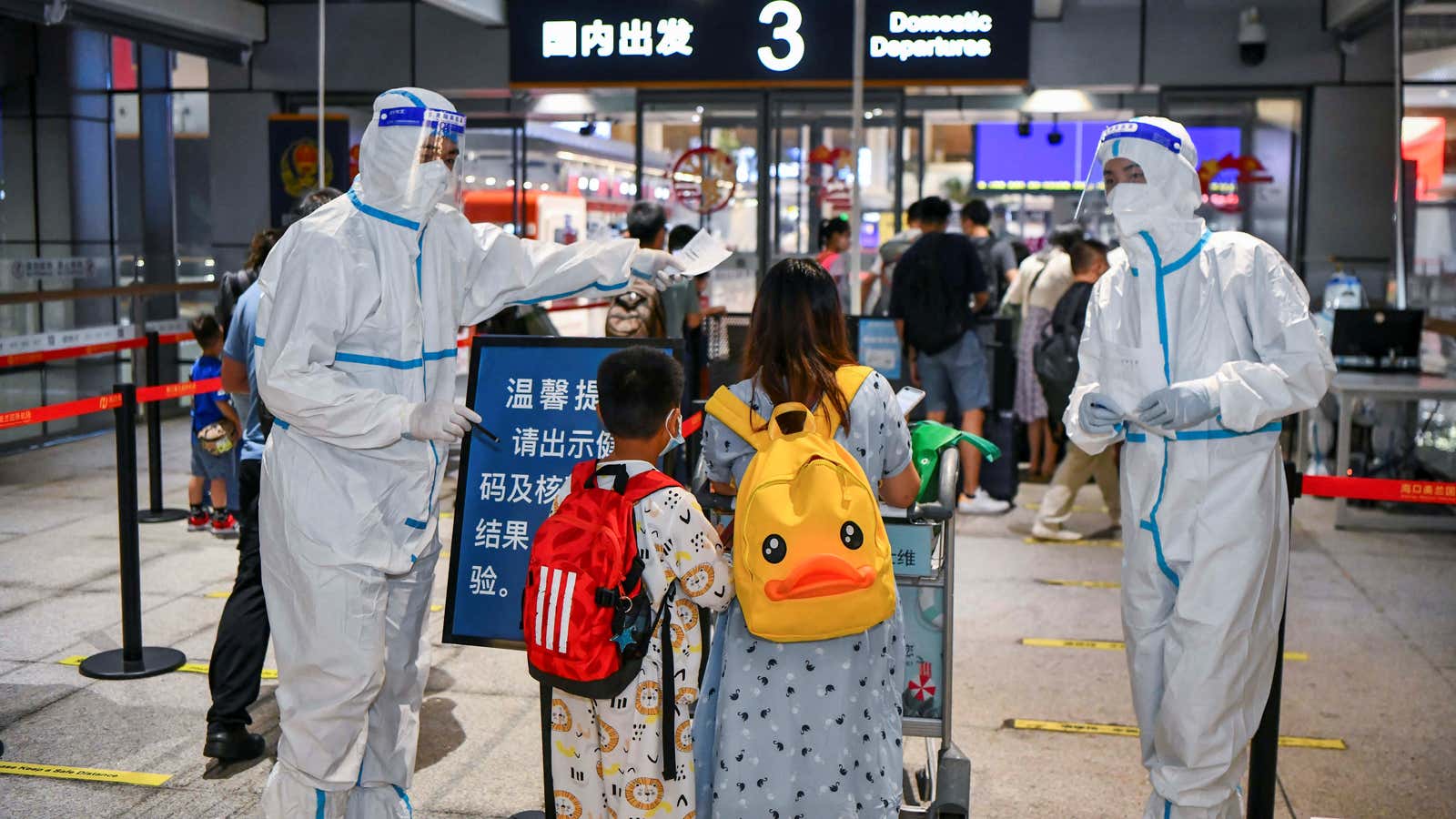The US’s life expectancy continued its decline from 2020 to 2021, dropping sharply to 76.1 years.
With the latest decline, US life expectancy is now at its lowest since 1996, according to new data (pdf) from the Centers for Disease Control and Prevention’s (CDC’s) National Center for Health Statistics. It also means that the gap in longevity at birth between people in the US and China has now widened to a full year.
Covid is the main cause of shortened US life expectancy
The biggest driver in the drop in US life expectancy is covid, accounting for 50% of the decline, according to the CDC. Government figures show that as of Aug. 31, over 1.04 million deaths in the US have been attributed to covid.
“Unintentional injuries”—which include opioid overdoses and motor vehicle crashes—were the second-largest contributor to the drop in life expectancy, making up 15.9% of the decline.
Chinese data on life expectancy for 2021 is not yet available. Remarkably, however, Chinese life expectancy actually increased by 0.2 years in 2020 from the year prior. By contrast, US life expectancy fell 1.8 years in 2020 over the same period.
China’s zero-covid strategy has averted staggering mortality
A key reason for the disparity is China’s stringent covid controls, beginning in the early days of the pandemic, with the Wuhan lockdown that began in January 2020, and continuing with today’s aggressive zero-covid policies.
Beijing has repeatedly said that it cannot diverge from its zero-covid approach without further safeguards such as higher vaccination rates, as doing so would risk 1.5 million deaths nationwide. As of March, vast swathes of the elderly Chinese population were still unvaccinated or not fully vaccinated, according to official figures. An attempt to implement a vaccine mandate in Beijing in July was abruptly rolled back.
Still, while China now has several homegrown covid interventions, including an antibody therapy combination and a promising antiviral pill candidate winding its way through the regulatory approval process, Beijing shows no signs of easing off its zero-covid strategy.
